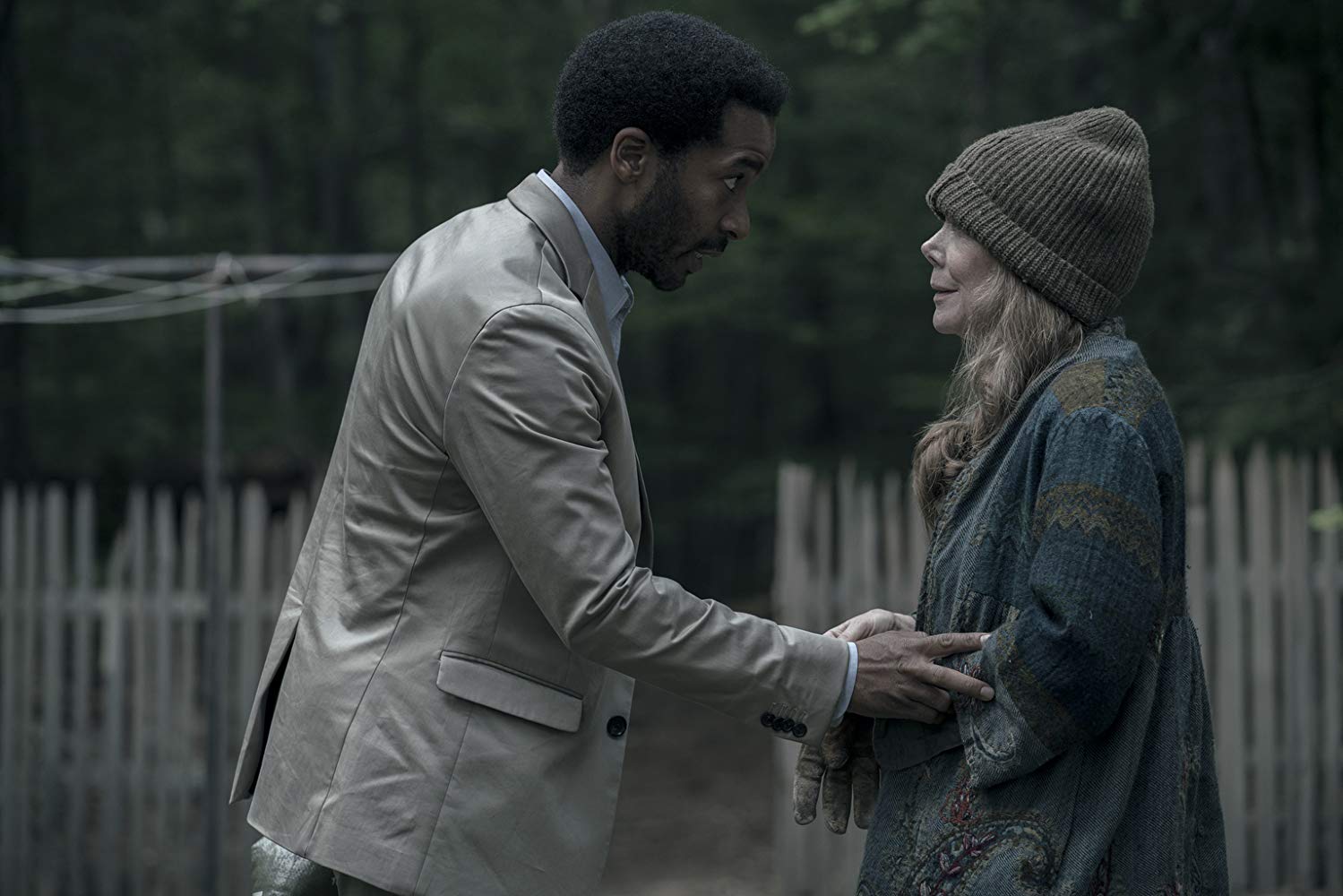No one can doubt how prolific Stephen King is as a writer — even after his announcement he was retiring in 2002. After putting to bed the Dark Tower series, a collection of short stories, and a novel about another evil car, King said, “then that’s it, I’m done . . . done writing books”.
Well, that didn’t last long.
Since 2002, he’s published 16 books — with a 17th on the way in October. He can’t quit words — and I’m sure Hollywood hopes he doesn’t any time soon. Sure, there’s still gold to be mined with his more current novels, but King’s work has been in the popular culture for so long that something like ”Castle Rock” on Hulu seems inevitable. It’s not so much of an adaptation as it is an easter egg strewn series that takes characters, places, and even some events from King’s novels to create a stand-alone show. Put an executive producer stamp on it from J.J. Abrams and suddenly you have the imprimatur of a ”bankable” project.
Season 1 of the series concluded on Wednesday night, and while the series did have many compelling moments, and a knockout, Emmy-worthy performance by Sissy Spacek, it kind of a ended with a thud — or maybe more like a shrug…from the audience. The story centers on Henry Deaver (Andre Holland), a death-row defense attorney who comes back to his hometown of Castle Rock after the town’s prison warden kills himself and a young man — known as The Kid (Bill SkarsgÁ¥rd) — is found in a cage in the bowels of the Shawshank prison. He’s mostly mute but does utter Deaver’s name during an interrogation by prison officials. Soon, Deaver is heading back to Castle Rock to see his mother, Ruth (Spacek) — who is suffering from dementia. While there, he reconnects with a childhood friend Molly Strand (Melanie Lynskey), offers his services to The Kid, and comes to terms with a death of his father that happened when he was a boy.
In addition to The Kid’s presence (who is evil personified), it’s Deaver’s boyhood that serves as a kind of mystery in the series. Deaver — who was adopted by Ruth and Matthew (Adam Rothenberg) — went missing for weeks after he and his father went into the woods near the town when he was about 10-years-old. Henry has no real memory of where he was and how he went missing, but through a series of flashbacks — and a persistent high-pitched tone that only he seems to hear — Henry starts to piece together what happened on that trip, and how his father died in the aftermath of it. Like many of King’s novels, ”Castle Rock” deals with childhood abuse, evil, supernatural events, and, of course, horror. Readers of King’s work and viewers of the adaptations know this well-trodden path. And maybe that’s why ”Castle Rock” feels a little too predictable when these themes are woven into the big arc of the show. The acting is good, the production quality is high, and even parts of the story are very captivating, but it leads to an ending that was flat. When you have 11 episodes to create conflict, and really pile it high with a number of complex elements, you better deliver in the end. However, for whatever reason, Sam Shaw and Dustin Thomason — who created the show — let the air out of the proverbial balloon in the conclusion. Instead of a pop, however, we got a monotone squeaking that sputtered to a flaccid end. Sure, the series set itself up for a second season with a minor character, Jackie Torrence, saying she was going ”out west” to do some research for a horror novel she’s working on, but other than that, there wasn’t much to write home about, except this: Sissy Spacek’s performance in ”The Queen.” She basically gave a master class in acting in that episode as Ruth struggled through the fog of dementia to know what was real and what was a memory. Explaining to her grandson that her coping mechanism was to have breadcrumbs to help her. Those crumbs were chess pieces, and through the episode, the chess pieces give us a window into Ruth’s backstory, her struggle with her twisted marriage, how she fell in love with the town’s top cop, and even Henry’s disappearance. After watching that episode, I was struck by how well Spacek handled the material. She had to shift from lucid to lost often in the course of one scene — and do it in a convincing manner without overdoing it. That takes a lot of talent, and Spacek certainly has the gravitas to deliver what, to me, should get her an Emmy next year.
As far as the ”Castle Rock” the series goes: just know that you’re getting set up for an ending whose subtlety will leave you wondering what all the hubbub is about.






Comments